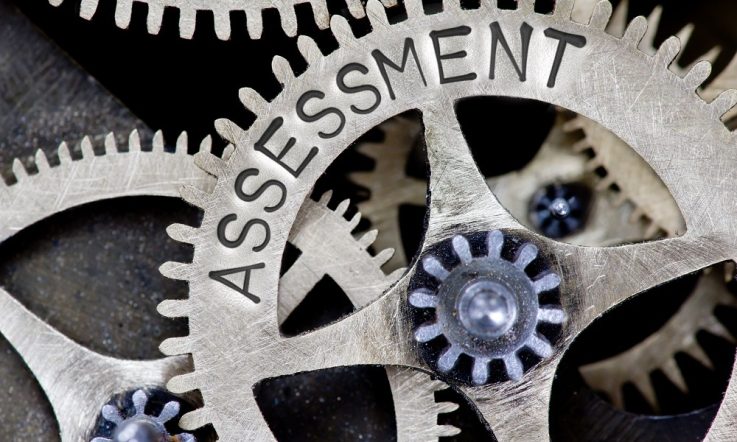Assessment reform: Insights from New Zealand
In his first Teacher column of 2024, Professor Geoff Masters AO discusses assessment reforms proposed in New Zealand to reverse that country’s declining student performance.
I recently read an interesting article on the need to reform assessment in New Zealand schools (Absolum et al., 2023).
The article argues that success in reversing the decline in student performance in New Zealand will require fundamental reform of the curriculum, teaching, learning and assessment. This parallels the conclusion of some of the world’s top-performing school systems that current education challenges require deep reform of existing structures—including the school curriculum and approaches to assessment (see Building a World-Class Learning System, Masters, 2023).
Specifically, the authors see the transformation of assessment as essential to improved student performance and to solving New Zealand’s ‘education woes’. For them, transformation means turning assessment on its head.
The authors observe that, historically, assessment has been an ‘evaluative device’ used by teachers to establish how well students have learnt what they have been taught. The process has been one of judging student success, often reporting this as a percentage or grade. Assessments have been made during teaching to identify gaps and the possible need to reteach (formative assessment) and at the end of teaching for reporting purposes (summative assessment). In both cases, teachers have managed the assessment process, with students being largely passive recipients of ‘teacher wisdom and knowledge’.
The alternative described in the article is to use assessment for a fundamentally different purpose: to establish the points individuals have reached in their learning so that teachers and students can co-develop goals for further learning and monitor learning progress over time. This includes identifying best next steps for teaching and jointly setting challenging but realistic learning targets.
Under this alternative, assessments inform starting points for action rather than simply determining how much of a taught body of content students can demonstrate. Whether assessments are ‘of the moment’ or based on more formal assessment instruments, they precede and inform teaching and learning:
‘As educators we have clung to a model of compulsory education framed as Teach, Learn, Assess (TLA), where the teacher drives the process. Our view is that assessment always precedes teaching and learning, and that it is a co-constructed process between learner and teacher: Assess, Teach, Learn (ATL).’ (Absolum et al, 2023, p6)
Assessments for this purpose depend on frames of reference that make explicit the nature of progress in an area of learning. A clear progression of learning is a prerequisite for establishing the points individuals have reached, deciding next steps, and monitoring progress (or growth) over time.
The authors argue that, if students are to have ‘agency’ for their learning, they need to know, in collaboration with their teacher, where they are in their long-term learning progress. What point have I reached? What are appropriate next steps and goals for my further learning? What progress have I made over time?
If teachers are to respond to individual learning needs in a ‘knowledgeable and adaptive’ way, they too require an understanding of the stages learners have reached. This enables them to support individual learning at ‘an appropriate depth and pace’.
Similarly, parents are often in the dark about what progress their children should (and do) make over the course of a year. In common with the broader education system, they lack a valid and reliable way to monitor children’s progress across the years of school. Again, a well-constructed map of learning is a prerequisite for monitoring and evaluating children’s long-term growth:
‘Students and their parents and [extended families] deserve good answers to questions about progress... “Don’t tell me how bad or slow I am. Tell me how much I have progressed, why you think that is, what my next steps are, and how I might best approach those.”’ (Absolum et al., 2023, p14)
The authors observe that evidence-based learning progressions provide teachers, students and families with deeper understandings of the nature of development in particular learning areas. In contrast, traditional approaches to the curriculum and assessment provide limited information about what it means to develop richer knowledge, deeper conceptual understandings and higher levels of skill across the school years. They are also not designed to be responsive (‘adaptive’) to the very different stages individual learners have reached. For these reasons, the authors call for learning progressions across the school curriculum:
‘As the Year 1 to 10 literacy and numeracy progressions have been rolled out and improved over the last eight or so years, many teachers have talked about how much they have learnt themselves about the nature of literacy and numeracy development, how useful the progressions are for them, their students, and their students’ [extended families] … We need progressions of learning across the whole curriculum, not just restricted to literacy and numeracy… Students must be clear about how they are progressing across the entire curriculum. Teachers must be clear about the learning progressions in each curriculum area.’ (Absolum et al., 2023, pp8-14)
Finally, the article makes the valuable observation that the ability to plan and monitor progress of any kind depends on a deep understanding of the nature of progress, as well as dependable information about the stage a person has reached on their learning/ development journey:
‘Irrespective of where you find yourself within the compulsory education system, good assessment information is critical if you wish to learn and improve. This is obviously true if you are a student, but it is just as true if you are a teacher, a school leader, a staff member of one of the central education agencies, or a professional development facilitator. If you don’t know where you are now in your own particular learning or improvement endeavour, you cannot know what to do next to make further progress.’ (Absolum et al., 2023, p12)
References
Absolum, M., Carlisle, A., & Chamberlain, M. (2023). Reviving the Flames of Excellence: Igniting a System that Learns How Using Assessment Properly Should Solve New Zealand’s Education Woes. New Zealand Assessment Institute. https://www.nzai.org.nz/wp-content/uploads/2023/06/Reviving-the-Flames-of-Excellence-Final-20062023.pdf (PDF, 393KB).
Masters, G. N. (2023). Building a world-class learning system: Insights from some top-performing school systems. National Center on Education and the Economy. https://ncee.org/book-report/building-a-world-class-learning-system/



